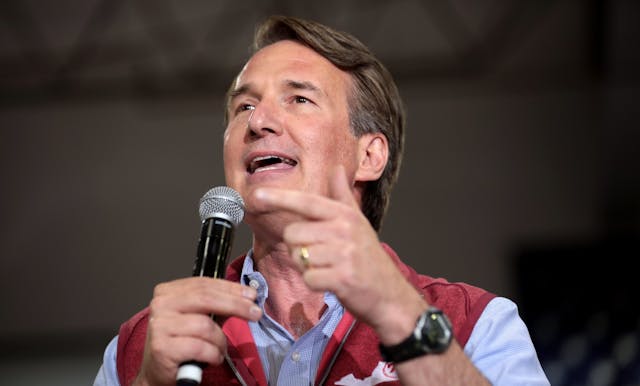Harry Reid Is Wrong: The Founders Didn't Envision a 'Bipartisan' America

With the death of SCOTUS Justice Scalia, the Washington rhetoric has heated up--to at times insurmountable levels of blustery rhetoric that sounds good, but has no basis in fact or history.
In a Washington Post op-ed, Senate Minority leader Harry Reid killed his own argument in one sentence, "Our founders who envisioned a fair, bipartisan process must be rolling in their graves."
Understandable is the gist of Reid's statement. The Founders designed a quasi-parliamentary style government that has two options -- yea and nay -- to any question, with members rallying around either position.
That is the greatness of any parliamentary system. Only one question is asked at a time and only 3 answers exist: yes, no, or present (no-vote). This clears up infinite amounts of ambiguity, argument, and political 'hem-hawing' that exists in other systems -- especially the royal courts of Europe that the Founders were trying to avoid.
Within this framework, the Founders expected that laws would be hard to pass, that governance and compromise would be necessary to rally the support around the passage of any measure. At this time in American history, most saw themselves as citizens of their state first, nation second, and regional issues were almost always too important to 'let go of' during any national debate.
'Bipartisanship' today means something totally different, and assumes the status quo of the two-party system.
While the Founders definitely tended to rally around a two-party system quickly, even while debating the Constitution itself, it was far from what they claimed to have envisioned for our nation. One look at George Washington's farewell address identifies a significant part of the problem we are facing with the current SCOTUS crisis:
The alternate domination of one faction over another, sharpened by the spirit of revenge, natural to party dissension, which in different ages and countries has perpetrated the most horrid enormities, is itself a frightful despotism. But this leads at length to a more formal and permanent despotism. The disorders and miseries, which result, gradually incline the minds of men to seek security and repose in the absolute power of an individual; and sooner or later the chief of some prevailing faction, more able or more fortunate than his competitors, turns this disposition to the purposes of his own elevation, on the ruins of Public Liberty. -- Washington's Farewell Address
The fact that we have allowed the two-party system to thrive has enabled one side or the other to try to dominate the other, quite frankly with the 'spirit of revenge' that Washington had predicted.
When two politicians, Chuck Grassley (R-Iowa), the chairman of the Senate Judiciary Committee, and Senate Majority Leader Mitch McConnell (R-Ky.) control the process through party affiliation to the extent that SCOTUS nominations may or may not come up in scheduling, Washington's greatest fear has been truly manifested -- the 'ruins of Public Liberty.'
We don't need a fair bipartisan system; we need a system that has freed itself from the control of political parties. We need to have politicians who are voting the conscience of their self and state, not their national meal-ticket to re-election.
But most importantly, we need politicians who can see past the 110-year-old two-party dominance and see that there is a better way -- and not just assume it was the way the Founder's intended.



